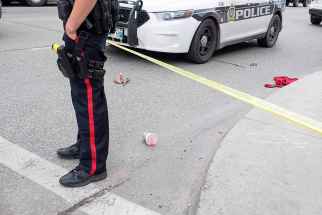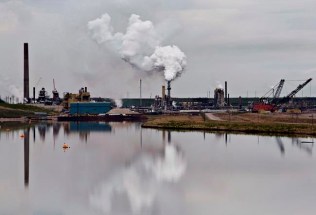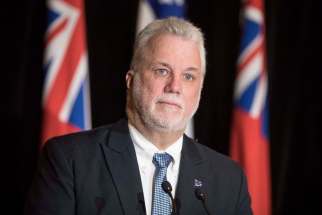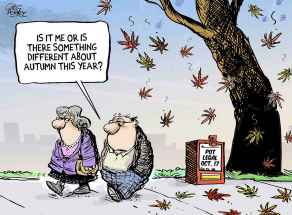Winnipeg first responders await city rules on cannabis use
Read this article for free:
or
Already have an account? Log in here »
To continue reading, please subscribe:
Monthly Digital Subscription
$0 for the first 4 weeks*
- Enjoy unlimited reading on winnipegfreepress.com
- Read the E-Edition, our digital replica newspaper
- Access News Break, our award-winning app
- Play interactive puzzles
*No charge for 4 weeks then price increases to the regular rate of $19.00 plus GST every four weeks. Offer available to new and qualified returning subscribers only. Cancel any time.
Monthly Digital Subscription
$4.75/week*
- Enjoy unlimited reading on winnipegfreepress.com
- Read the E-Edition, our digital replica newspaper
- Access News Break, our award-winning app
- Play interactive puzzles
*Billed as $19 plus GST every four weeks. Cancel any time.
To continue reading, please subscribe:
Add Free Press access to your Brandon Sun subscription for only an additional
$1 for the first 4 weeks*
*Your next subscription payment will increase by $1.00 and you will be charged $16.99 plus GST for four weeks. After four weeks, your payment will increase to $23.99 plus GST every four weeks.
Read unlimited articles for free today:
or
Already have an account? Log in here »
Hey there, time traveller!
This article was published 09/10/2018 (2623 days ago), so information in it may no longer be current.
The city has yet to tell its police officers, firefighters and paramedics what the rules are for off-hours consumption of cannabis with only a week to go before legalization is a reality.
Sources with civic unions representing Winnipeg emergency workers told the Free Press the city has only recently begun discussing cannabis-use policies for their personnel.
Currently, all civic employees are governed by the city’s alcohol and drug policy. That policy is being revised by the city’s human resources department, according to Winnipeg Fire Paramedic Service Chief John Lane.
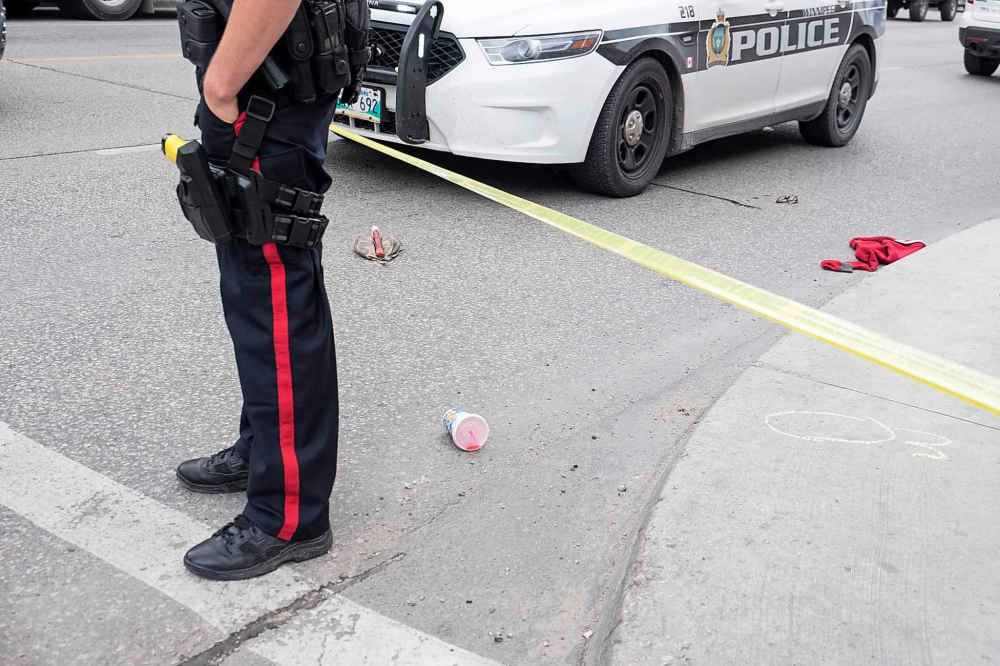
However, it remains unclear if the policy will be updated prior to Oct. 17, the day recreational cannabis is legalized across the country.
It’s an issue all Canadian police forces are facing and has resulted in a wide range of approaches — from outright bans to simply being “fit for duty” when reporting to work.
Under the current rules, a Winnipeg spokesman said employees, “are required to be fit for work throughout their work day. This means being able to perform assigned duties safely, competently and productively without any limitations due to substance use or the after-effects of substance use.”
Maurice Sabourin, president of the the union representing city police, said he hopes no drastic changes to the current rules are ushered in. He said the city should bring cannabis in line with alcohol, but change little else.
“I know the service has asked us what our position is going to be,” Sabourin said. “The city already has a drug and alcohol policy that covers the gamut from cough medicine to illicit drugs. I know they’re going to include something a little more specific towards marijuana, but we feel the policy is fine the way it is.
“In our view that policy should remain. The legalization of marijuana shouldn’t play into it all that much. It doesn’t have to be a very far step.”
News the City of Winnipeg has only begun looking at cannabis-specific policy for first responders comes on the heels of announcements from other agencies in Canada on what their rules will be. The policies differ from organization to organization.
Last month, the Calgary Police Service announced gun-carrying members of the force would be banned from using cannabis, whether on- or off-duty, once the drug is legalized.
This week, it was revealed the RCMP will instruct all gun-carrying Mounties from consuming the drug for 28 days before a shift, effectively making recreational use impossible. That will also be the policy for the Toronto Police Service, which won’t allow officers to use cannabis for 28 days before reporting for duty.
Those are some of the most restrictive policies in the country. Other police services, including Ottawa and Vancouver, have announced a “fit for duty” approach, which essentially means officers will be expected to be sober when they show up for work.
A City of Brandon spokeswoman said they will also use a “fit for duty” approach. She said an updated drug and alcohol policy awaiting approval will govern all civic employees. The draft policy includes “a framework of expectations for safety-sensitive positions, which include, but are not limited to, first responders,” she said.
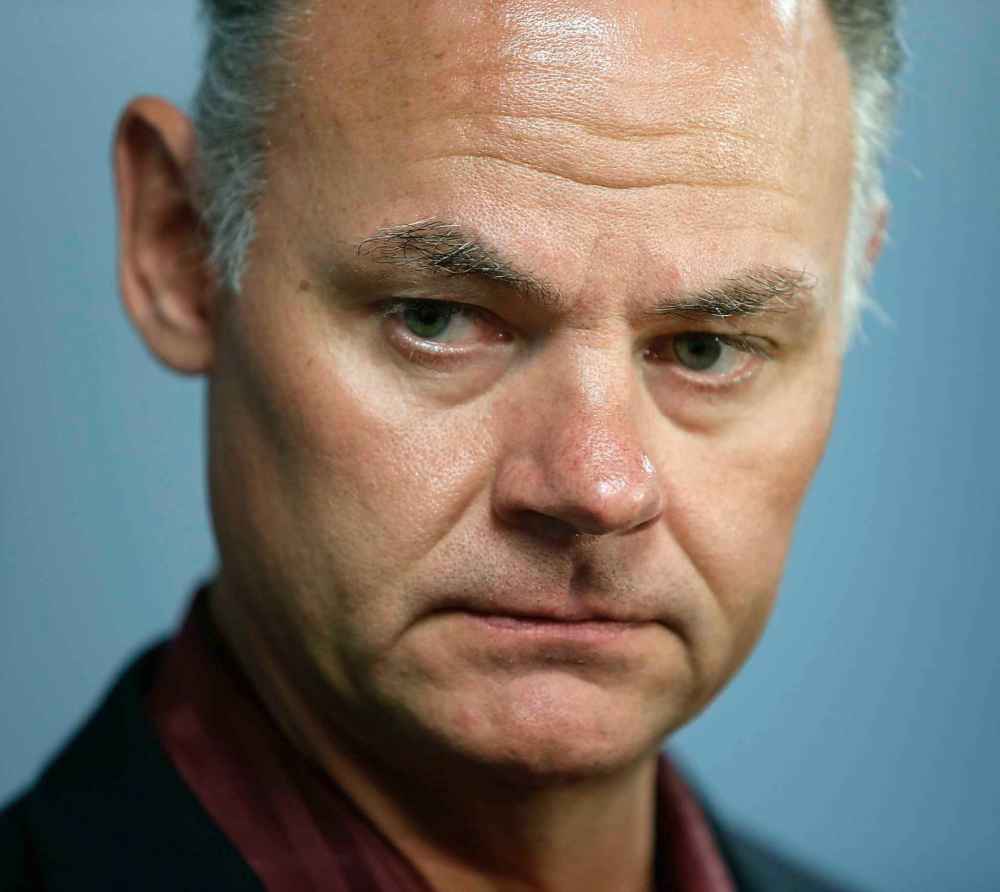
Meanwhile, the Canadian Armed Forces plan to place time restrictions on cannabis use. All service personnel will be expected to refrain from consumption for eight hours before a shift. Other members, depending on their duties, will have different use restrictions.
Sources with unions representing Winnipeg’s first responders expressed surprise to the Free Press that the city has just begun working through what its cannabis-use policies will be.
Even Mayor Brian Bowman was unclear on the matter Tuesday.
“We’d have to dig up that information to see. I know there has been a lot of work by the public service in terms of HR issues, so they would be best able to answer that. I wouldn’t know off the top of my head,” Bowman said.
Two weeks ago, the Winnipeg Police Service sent out a media notice saying its “organizational response” to cannabis legalization would be released in the coming weeks. When reached Tuesday, a spokeswoman had no updates.
ryan.thorpe@freepress.mb.ca
Twitter: @rk_thorpe

Ryan Thorpe likes the pace of daily news, the feeling of a broadsheet in his hands and the stress of never-ending deadlines hanging over his head.
Our newsroom depends on a growing audience of readers to power our journalism. If you are not a paid reader, please consider becoming a subscriber.
Our newsroom depends on its audience of readers to power our journalism. Thank you for your support.

